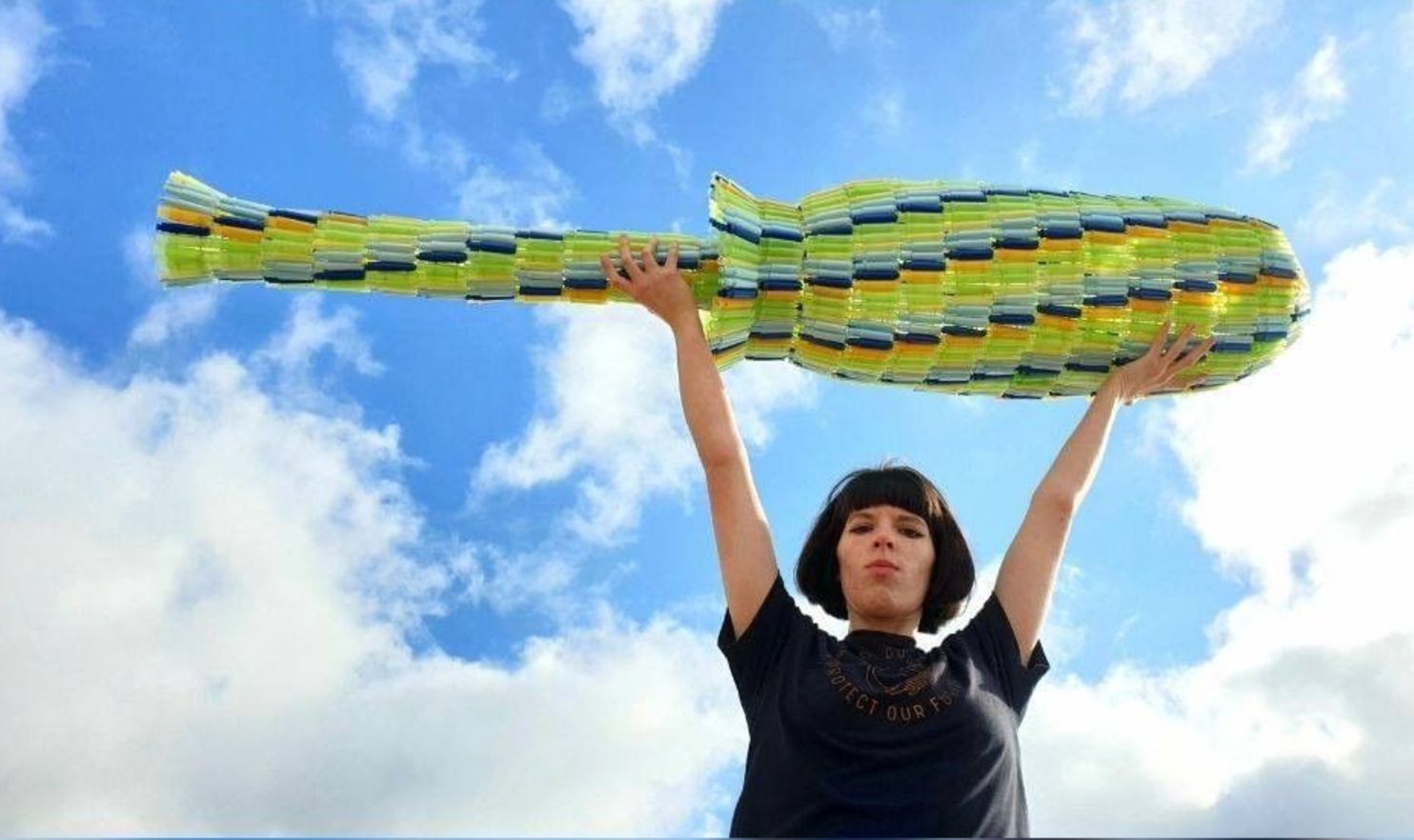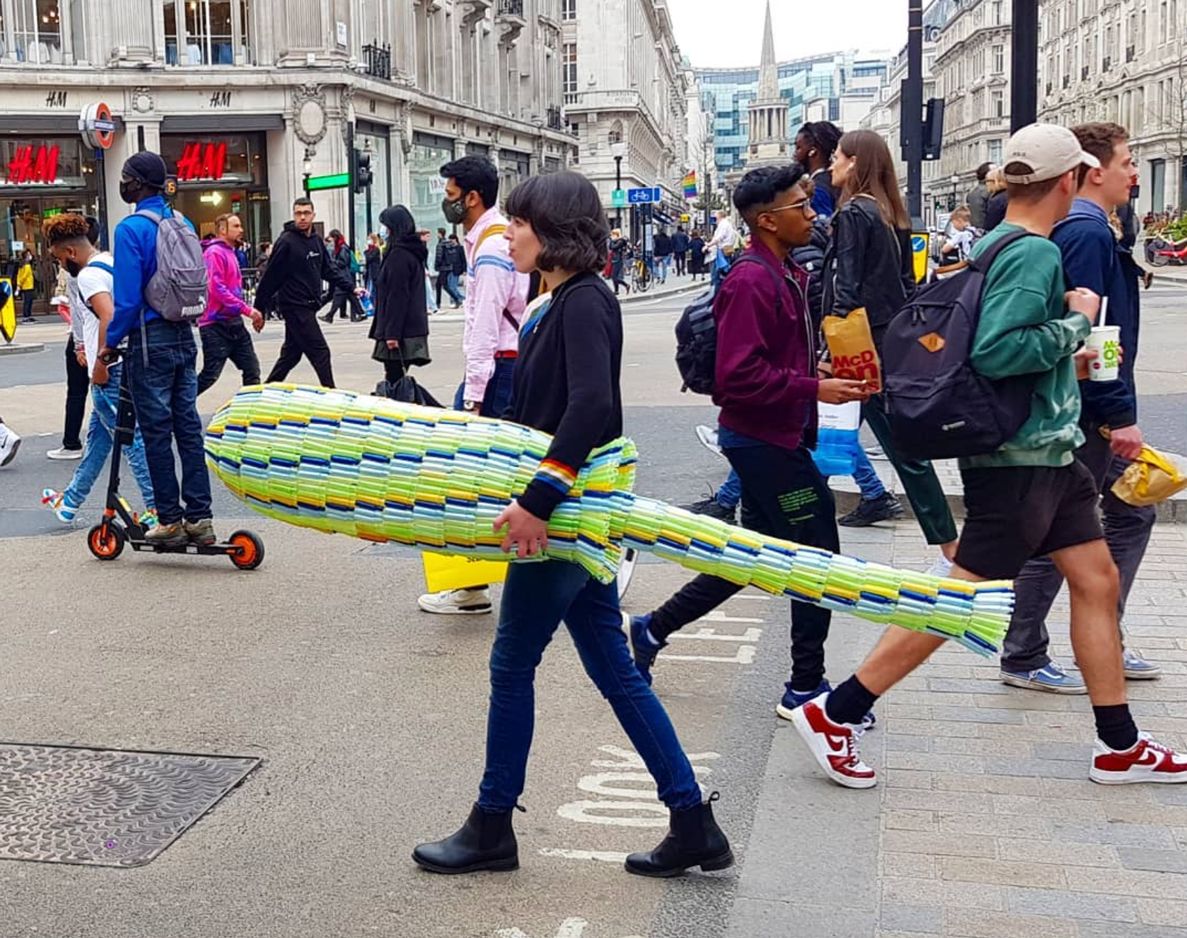Plastic has become a regular part of everyday life. Our culture of fast and unsustainable plastic consumption is only becoming more and more of a problem.
Over 300 million tons of plastic are produced every year for use in a wide range of industries, and at least 14 million tons of plastic end up in the ocean every year. We are at a point where plastic makes up 80% of all marine debris found from surface waters to deep-sea sediments.
This worrying situation is also addressed and flagged by the United Nations Sustainable Development Goals, with the urge to combat Climate Action with Responsible Consumption and Production.
Former postal worker and current environmental activist Ella Daish has picked up on this issue, turning her attention to the amount of waste that is by period hygiene articles in particular. The UK based activist began living a more eco-friendly lifestyle, changing her personal plastic consumption habits in her own life. While doing so, she soon became bothered by the lack of eco-friendly options.
“As individuals, we can’t make a decision about what we’re purchasing if the option isn’t on the shelf,” she explained.
Instead of buying locally, Daish started to buy sustainable products online, but the fact that she even had to take this step to maintain her eco-friendly lifestyle was still in her head. She expresses how she was constantly thinking: “If these small brands can make it work, why can’t the big brands? Why aren’t they doing something about it?”
So, Daish decided to make moves against this situation, founding the #EndPeriodPlastic campaign.

Her mission is to make the multinational big brands become more sustainable and remove plastic from the products, which would make sustainable period products available for the broader community. However, since launching her campaign in 2018, Daish faced significant headwind, especially with regards to her major counterpart in this movement: the multinational seller Procter & Gamble.
As she explained in an interview with the Guardian: “I am just fed up. I’ve been doing this campaign for over three and a half years and despite being the global leader of these products they are not doing anything. They are falling behind and every other manufacturer and retailer I’ve met is moving in the right direction.”
In response to her open claims, a spokesperson of P&G said: “We know we have an important role to play in ensuring our products have the lowest impact on the environment, recognising that all products have an impact but in different ways. But solutions are not straightforward, take time and we need to balance the needs of our consumers while striving to find alternatives.”
As a result, Daish realized that she needs to include the public more if she wants to make her point and have a real influence on the big player. So, she decided to go public on her social media, asking people across the UK to send her plastic tampon applicators they found polluting their local environment.

In the end, Daish was able to build a giant tampon applicator constructed out of 1,200 applicators from 15 different locations around the UK. Out of all the collected applicators 87.5% came from P&G’s brand Tampax.
In November 2022, Daish went to the P&G headquarters in Geneva, Switzerland to set an example to underline her message and her aim with emphasis.
Her mission succeeded, as due to her actions, she gained a number of followers — and her campaign only continues to grow. Moreover, her reach is now even bigger than before, with a petition to make all Menstrual Products Plastic Free an upcoming documentary produced by Outpost Pictures in which she will star, which has been in production since spring 2021.
Until then, fans and supporters will be able to watch her journey and actions via her Instagram account.
